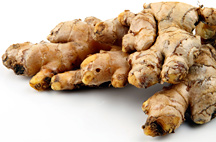Excessive amounts of omega-6 fatty acids are found in deep-fried foods, fatty meat, farm-raised tilapia and catfish, and all foods made with corn, safflower, sunflower, cottonseed, peanut, and soybean oils.
These foods promote inflammation and immune activation and thus should be avoided if we want to reduce acute phase responses. We should instead eat foods with low omega-6 fatty acids and proper levels of anti-inflammatory omega-3 fatty acids, including (but not limited to) green vegetables, wild game, grass-fed meat, most fish, and hemp, chia, and flax seeds. Supplementation with omega-3 fish oil is also beneficial.
An additional dietary factor that promotes inflammation is overeating. We typically view overeating as merely a means by which we put on additional body fat; however, it turns out that immediately after overeating, we create a pro-inflammatory immune response that includes the excess production of the same cytokines that cause the acute phase response.
This information should make us think about what we do to ourselves during the holiday season - we invite the expression of an acute phase response. We exercise less and eat more inflammatory foods. Psychological stressors also seem to be greater during this time of year, and most of the nation has to deal with a stressful cold environment. It all adds up to a breeding ground for immune response and symptom expression.
Nutritional Supplements to Support Healthy Immune Response
It should not be a surprise that key supplements are those that reduce inflammation and thus, help to reduce the chemistry associated with an acute phase response. Here are a few examples:
Vitamin C has anti-inflammatory functions and thus can support a healthy immune response. Long-term use of vitamin C does not seem to be preventive against acute phase symptoms; however, increasing vitamin C supplementation to 200-1,000 mg per day seems beneficial during an acute phase response.
Many spices: It is common to read/hear that ginger, garlic and other spices are beneficial against cold symptoms and have been used historically in this fashion. Not surprisingly, most spices have multiple anti-inflammatory mechanisms of action, which is likely why they offer some immune-supportive benefits.
Magnesium: Intravenous magnesium has been shown to alleviate symptoms in acute and chronic asthma. Most Americans are known to be deficient in magnesium, which may contribute to the expression of a host of diseases. Typical supplement recommendations (in addition to amounts contained in a multivitamin/mineral) range from 400-1,000 mg per day.
 Probiotics are supplemental bacteria that are beneficial to the gastrointestinal system. The most common probiotics include Lactobacillus acidophilus and Bifidobacterium. Research has demonstrated that probiotics reduce intestinal and overall body inflammation and support a healthy immune response.
Probiotics are supplemental bacteria that are beneficial to the gastrointestinal system. The most common probiotics include Lactobacillus acidophilus and Bifidobacterium. Research has demonstrated that probiotics reduce intestinal and overall body inflammation and support a healthy immune response.
Vitamin D: The most interesting nutrient regarding immune function is vitamin D. Several papers have been written about a unique function that vitamin D has - it reduces pro-inflammatory immune activity and improves anti-inflammatory immune activity. Adequate vitamin D levels are needed to help the body make a natural antibiotic called cathelicidin. In one study, subjects who took 2,000 IU of vitamin D per day for one year virtually eliminated self-reported incidence of colds and flu.
A Recipe for a Healthier You
So when considering the immune system and nutrition, the focus should be on avoiding the foods that promote inflammation and focusing on the foods that reduce inflammation. The best supplements to support a healthy immune response include fish oil, vitamin C, herbs like ginger and garlic, magnesium, probiotics and vitamin D. Always talk to your doctor before taking any supplement for the first time, particularly if you have a pre-existing health condition or are currently taking prescription medication.
David Seaman, MS, DC, DACBN, is the author of Clinical Nutrition for Pain, Inflammation and Tissue Healing. He has a master's degree in nutrition from the University of Bridgeport, Conn., and lectures on nutrition.

